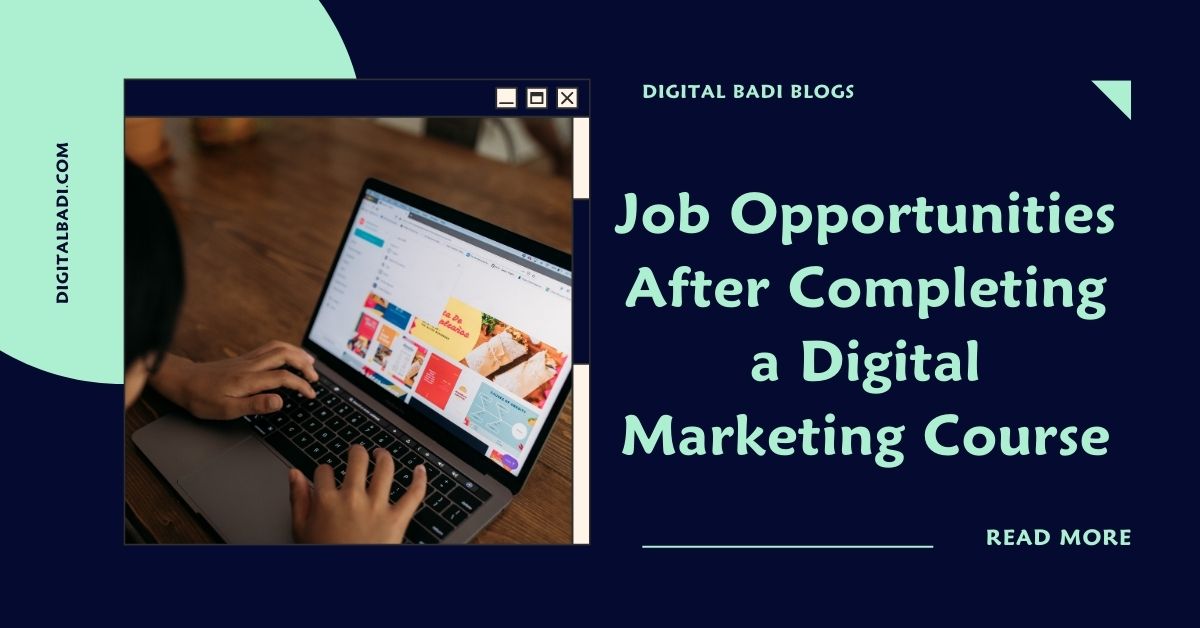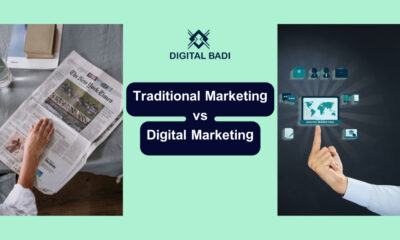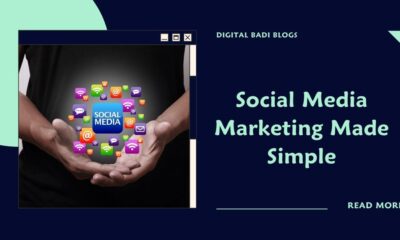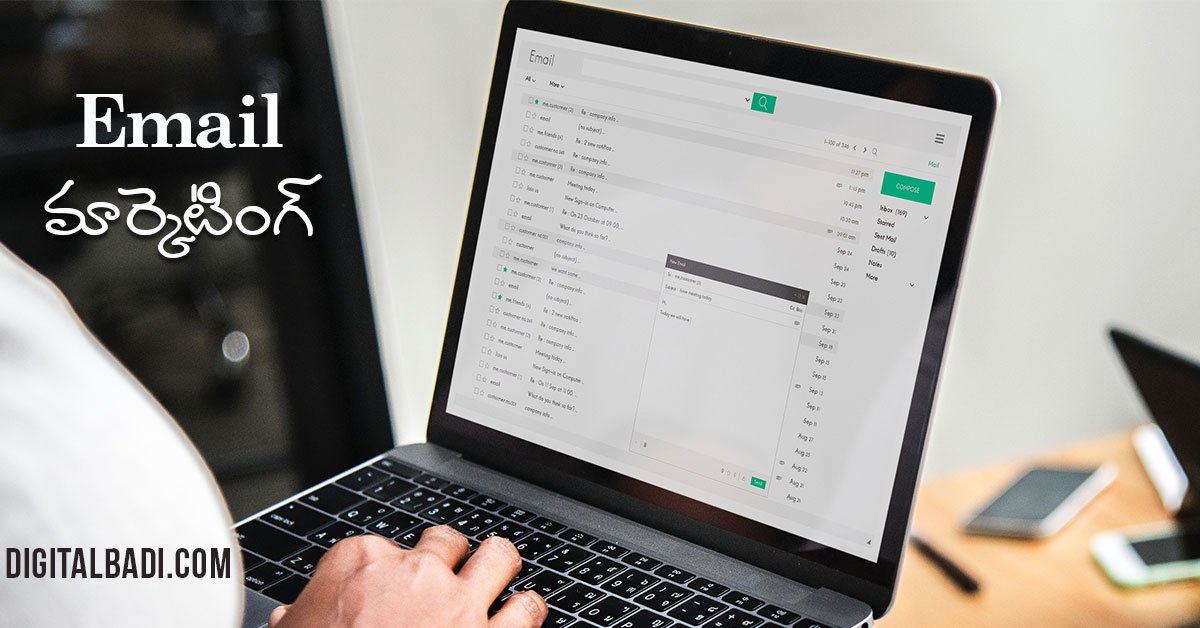Digital Marketing
What are the Job Opportunities After Completing a Digital Marketing Course?

Table of Contents
Job Opportunities After Completing Digital Marketing course
Hey everyone! This is John, founder of Digital Badi. In this post, I’ll overview the top digital marketing job roles you can pursue after completing our certification course.
With businesses rapidly adopting digital channels, demand for skilled digital marketing professionals is surging. As per LinkedIn’s 2022 Emerging Jobs Report, digital marketing jobs have grown over 100% annually in India!
Job opportunities after digital marketing: Because of the high demand, the pay for digital marketing roles is also high. You can get better roles in the organization because of your expertise, which can help you enhance your salary.
Let me give you an idea of the diverse career paths you can take with digital marketing skills:
Digital Marketing Executive/Manager
This is one of the most popular and lucrative roles you can aim for as a digital marketing fresher or professional.
Digital Marketing Executives conceptualize and execute campaigns across channels like SEO, social media, email, PPC ads, content marketing, and more. You get to manage end-to-end strategy and activation.
With 3-5 years of experience, you can progress to a Digital Marketing Manager role with more autonomy and responsibility. Managers oversee a team and digital marketing budgets.
The job involves things like:
- Developing integrated digital strategies
- Implementing multi-channel campaigns
- Tracking KPIs and optimizing based on data
- Driving brand awareness, traffic, leads, and sales
- Overseeing content production
- Managing junior executives and agencies
This role provides the perfect mix of creativity and analytics. You get to brainstorm innovative campaigns and also track ROI.
SEO Executive/Manager
SEO (search engine optimization) is a fast-growing sub-domain within digital marketing.
As an SEO executive or manager, you oversee activities like keyword research, on-page optimization, technical SEO, content creation, link building, and monitoring rankings.
You’ll work closely with content and web development teams. The focus is on optimizing websites/apps to improve their visibility and rankings on search engines like Google and Bing.
Social Media Manager
Social platforms are essential in digital marketing plans today. Brands constantly need creative people to manage their social media presence.
As a social media manager, you oversee your brand’s social media strategy and presence across platforms like Facebook, Instagram, Twitter, LinkedIn, YouTube, Pinterest etc.
Your role involves creating engaging social content, running campaigns and ads, analyzing performance data, collaborating with influencers, managing communities and more.
PPC Specialist
PPC or Pay Per Click involves running ads on search engines and social media platforms. Skilled PPC specialists are in high demand.
As a PPC expert, you will manage ad campaigns on Google Ads, Bing Ads, Facebook, Instagram etc. This includes things like managing bids, optimizing ads, A/B testing ad creatives, leveraging targeting options, and tracking ROI.
Email Marketing Specialist
Email marketing is still highly effective for customer engagement and retention.
Email marketers handle everything from designing email campaigns, writing compelling content, segmenting audiences, automating workflows, sending blasts, optimizing deliverability, and tracking performance.
This role mixes copywriting skills with data-driven optimization. You get to directly impact metrics like open rates, click rates, conversions, and revenue through email campaigns.
Web/App Analytics Manager
Every website and mobile app requires in-depth analytics to derive user insights.
As a web or app analytics manager, you’ll be responsible for tracking key metrics, optimizing user funnels, implementing tagging, segmenting users, visualizing data, identifying trends and opportunities, and driving growth.
Content Marketing Specialist
Content marketing involves creating blogs, articles, guides, videos, and other content formats to attract and retain users.
As a content specialist, you research topics, produce content briefs, write blogs/articles or scripts, promote content across channels, and track content performance. This role requires strong writing skills coupled with data-driven optimization.
Let me also give you an idea of salary ranges based on my industry experience:
- Digital Marketing Freshers – ₹2.5-3.5 LPA
- Executives (2-4 years) – ₹5-8 LPA
- Managers (5+ years) – ₹10-15 LPA
Top companies like Accenture, Capgemini, Dell, TCS, Cognizant, and Tech Mahindra regularly hire digital marketing professionals. Other sectors like ecommerce, healthcare, finance, and education also recruit digital marketers.
I hope this gives you a good overview of the diverse options you have after completing a digital marketing certification or course. The industry demand and rewards are high for skilled digital marketers.
Do share in the comments if you have any other questions. I’m always happy to guide you on building a rewarding digital marketing career! Join digital badi if you want to learn digital marketing course in Hyderabad.
John is a Digital Marketing Trainer and Blogger and YouTube creator with 5+ years work experience in digital marketing field. He is the founder of Digital Badi.
Digital Marketing
Reliable digital marketing course for BBA Students

Table of Contents
John is a Digital Marketing Trainer and Blogger and YouTube creator with 5+ years work experience in digital marketing field. He is the founder of Digital Badi.
Digital Marketing
How to Start a Career in SEO

John is a Digital Marketing Trainer and Blogger and YouTube creator with 5+ years work experience in digital marketing field. He is the founder of Digital Badi.
Digital Marketing
Reasons :Why Every Business Needs A Website?

Table of Contents
Reasons Why Every Business Needs A Website
Introduction:-
In today’s digital world, a website is no longer a luxury – it’s a necessity. With most customers searching online for products and services, a website is crucial for reaching new customers and growing your business. But what makes a website so important? Let’s explore the top 10 reasons why every business needs a website. A website serves as a digital storefront, open 24/7, allowing customers to access your business from anywhere. It also provides a professional online presence, helping to establish credibility and trust with potential customers. By having a website, you can stay competitive in today’s fast-paced digital landscape.
Reach a Wider Audience
A website allows potential customers to find and learn about your business 24/7, even when your physical location is closed. This increased visibility can lead to more sales and revenue. With a website, you can reach customers who may not have been able to find you otherwise.. Showcase products and services: A website provides a platform to showcase your products and services, making it easy for customers to learn about what you offer.
Provide Easy Access to Information:
A website makes it easy for customers to find information about your business, products, and services. Build Trust and Credibility A professional website establishes your business as credible and trustworthy. It shows that you’re invested in your brand and committed to providing value to your customers. A well-designed website can help build trust with your customers and establish your business as an authority in your industry. Establish a professional online presence A website helps establish your business as professional and credible. Showcase expertise and knowledge A website provides a platform to showcase your expertise and knowledge, helping to build trust with customers.
Amplify Your Marketing Efforts
A website is a powerful marketing tool that can help you reach a wider audience. You can use it to promote your products or services, share news and updates, and engage with your customers. With a website, you can amplify your marketing efforts and reach more customers than ever before. Enhance social media presence A website can enhance your social media presence by providing a central hub for your social media efforts.
Provide targeted advertising A website allows you to provide targeted advertising, increasing the effectiveness of your marketing efforts.
Stay Ahead of the Competition
In today’s competitive market, having a website can be a major differentiator. It sets you apart from businesses that don’t have an online presence and makes it easier for customers to choose you. With a website, you can stay ahead of the competition and establish your business as a leader in your industry.
– Provide competitive pricing: A website allows you to provide competitive pricing and special offers.
– A website allows you to offer exclusive promotions and discounts.
Save Time and Money
Having a website is a cost-effective way to reach a large audience. It’s much cheaper than traditional forms of advertising, such as print or TV ads, and can be updated easily and frequently. With a website, you can save time and money while still reaching a wide audience.
Reduce printing and distribution costs: A website reduces the need for printing and distributing marketing materials.
Save on advertising expenses: A website can save on advertising expenses by providing a targeted and effective marketing platform.
Automate customer inquiries: A website can automate customer inquiries, freeing up staff to focus on other tasks.
Improve Customer Engagement
A website allows you to engage with your customers in new and innovative ways. You can use it to share content, respond to feedback, and build a community around your brand. With a website, you can improve customer engagement and build strong relationships with your customers. Use data and analytics to personalise the user experience, tailoring content and offers to individual customers’ needs and preferences.
Increase Sales and Revenue
A website can help you increase sales and revenue by making it easy for customers to find and purchase your products or services online. With a website, you can reach customers who may not have been able to find you otherwise and drive sales and revenue. A website can help increase sales by making it easy for customers to buy from you. It can do this by having a shopping cart, showing products in a good light, and making it easy to checkout. It can also help by showing customer reviews, offering special deals, and making sure the website shows up in search engines. All of these things can help bring in more sales and money.
Enhance Brand Awareness
A website helps to establish your brand identity and reinforce your brand values. It’s an opportunity to showcase your brand’s personality and values. With a website, you can enhance brand awareness and establish your business as a leader in your industry. Enhance social media presence A website can enhance your social media presence by providing a central hub for your social media efforts. Provide targeted advertising A website allows you to provide targeted advertising, increasing the effectiveness of your marketing efforts.
Provide Value to Customers
A website can be used to provide value to your customers through content ,resources, and support. This helps to build trust and loyalty with your customers. With a website, you can provide value to your customers and establish your business as a trusted authority in your industry.
You can also share expert insights, create a community, and offer exclusive deals to further enhance customer experience. This leads to increased customer satisfaction and retention. Ultimately, it drives business growth and success.
Measure and Analyse Performance
A website allows you to measure and analyse your performance using tools like Google Analytics. This helps you to understand your customers better and make data-driven decisions. With a website, you can measure and analyse your performance and make improvements to drive sales and revenue. This helps businesses see how many visitors they have, where they come from, and what they do on the site.
In conclusion, having a website is essential for businesses of all sizes. It provides a digital presence, builds trust and credibility, amplifies marketing efforts, stays ahead of the competition, saves time and money, improves customer engagement, increases sales and revenue, enhances brand awareness, provides value to customers, and measures and analyses in performance. If you don’t have a website yet, it’s time to get one!
John is a Digital Marketing Trainer and Blogger and YouTube creator with 5+ years work experience in digital marketing field. He is the founder of Digital Badi.
-

 Digital Marketing3 years ago
Digital Marketing3 years agoTraditional Marketing vs Digital Marketing
-

 Modules of Digital Marketing2 years ago
Modules of Digital Marketing2 years agoSocial Media Marketing Made Simple: A Beginner’s Guide
-

 Telugu Blogs3 years ago
Telugu Blogs3 years agoడిజిటల్ మార్కెటర్ కి ఉండాల్సిన స్కిల్స్ ఏంటి?
-

 Telugu Blogs3 years ago
Telugu Blogs3 years agoడిజిటల్ మార్కెటింగ్ నేర్చుకోవడం ఎలా ?
-

 Graphic Designing3 years ago
Graphic Designing3 years agoCareer Opportunities in Graphic Designing
-

 Telugu Blogs3 years ago
Telugu Blogs3 years agoఇమెయిల్ మార్కెటింగ్ అంటే ఏంటి?
-

 Telugu Blogs3 years ago
Telugu Blogs3 years agoప్రీలాన్సింగ్ ద్వారా ఆన్లైన్లో డబ్బులు సంపాదించడం ఎలా?
-

 Digital Marketing3 years ago
Digital Marketing3 years agoCareer Opportunities in Digital Marketing




















